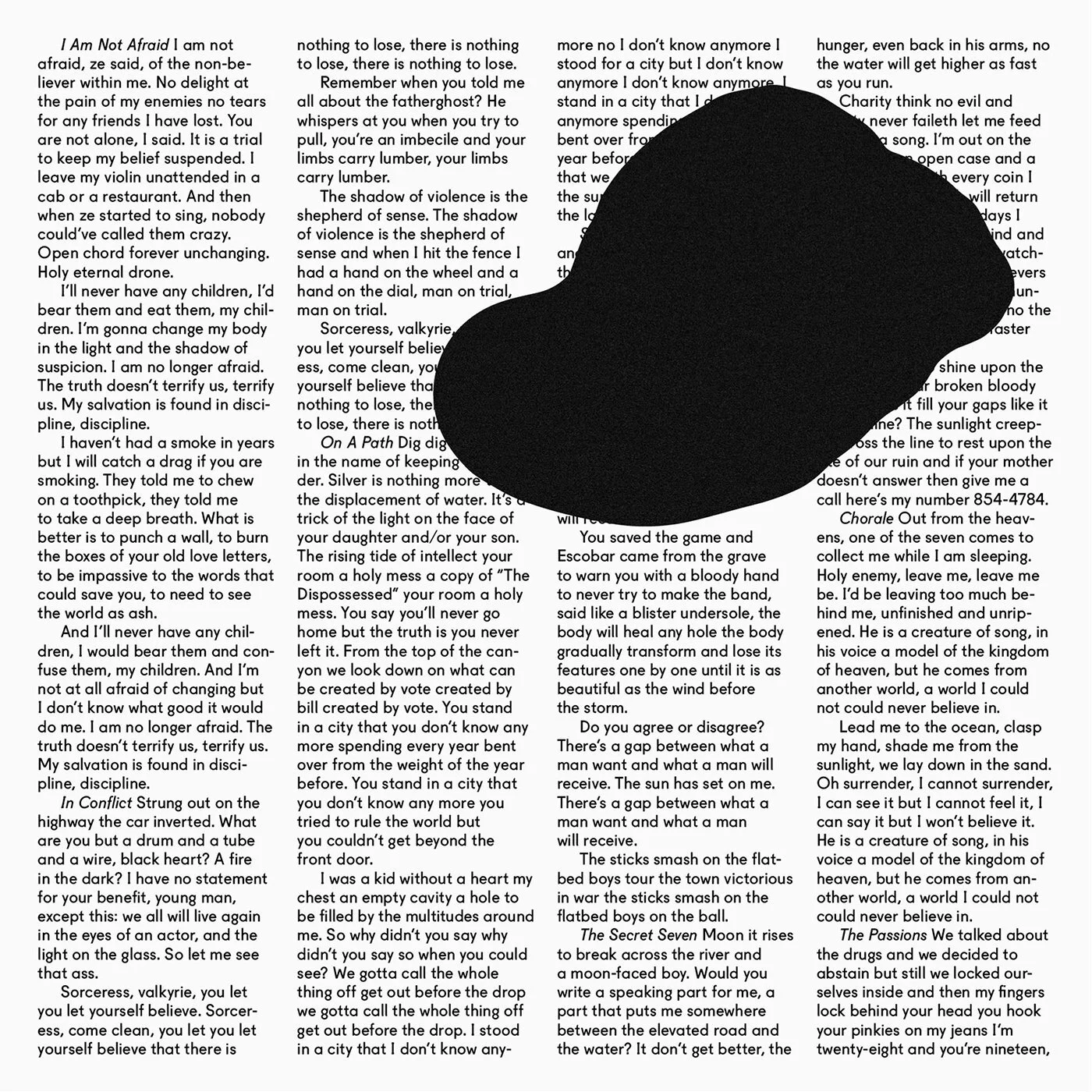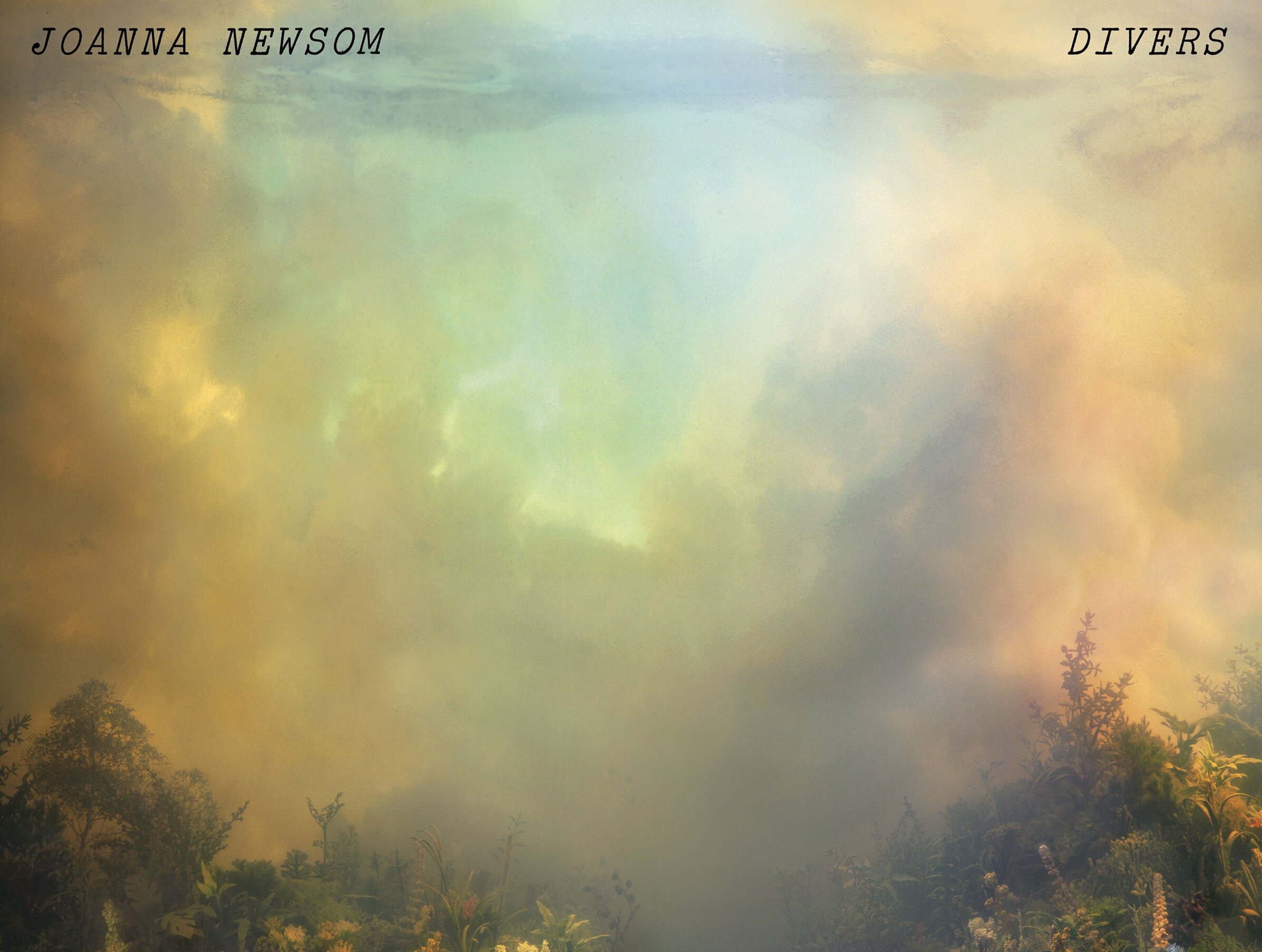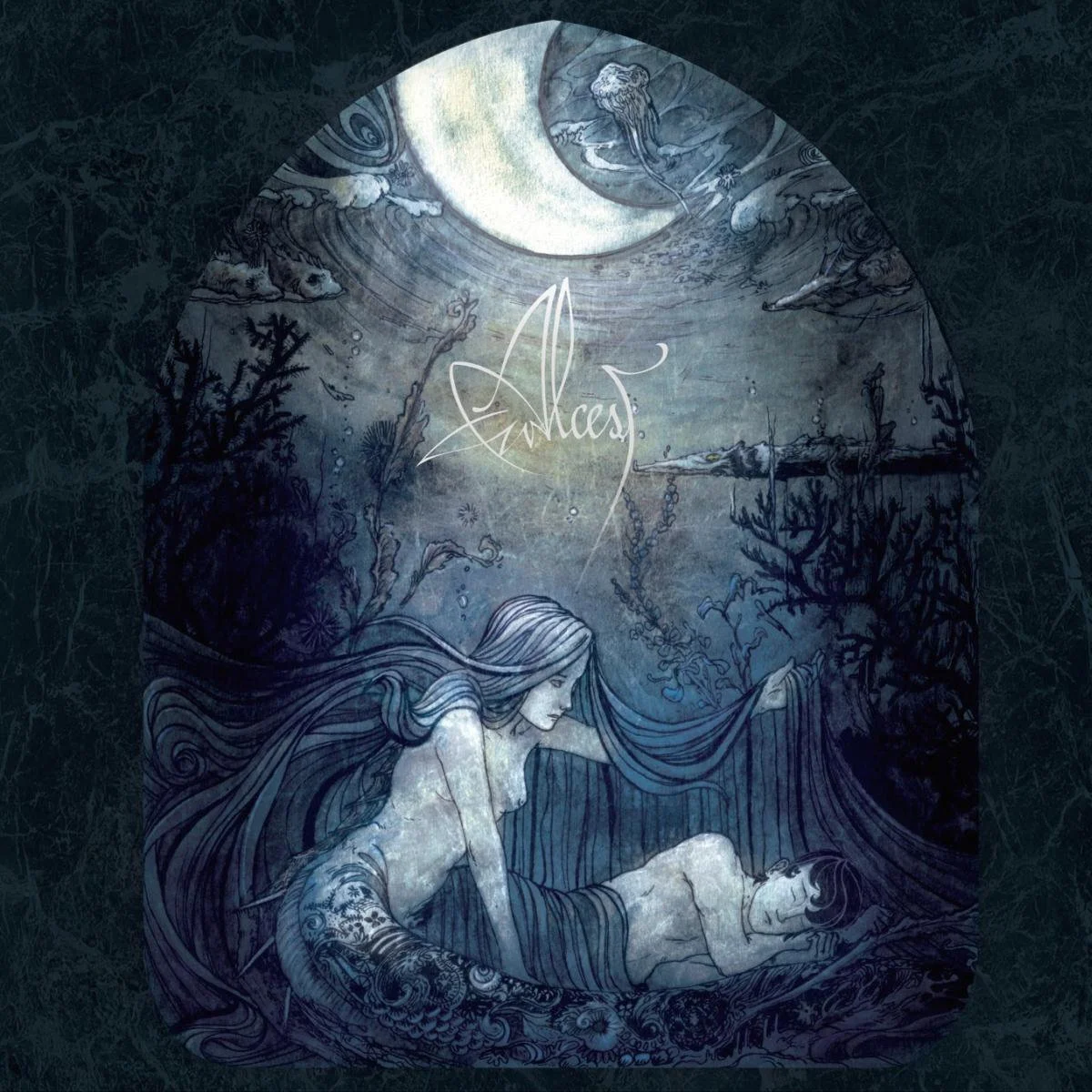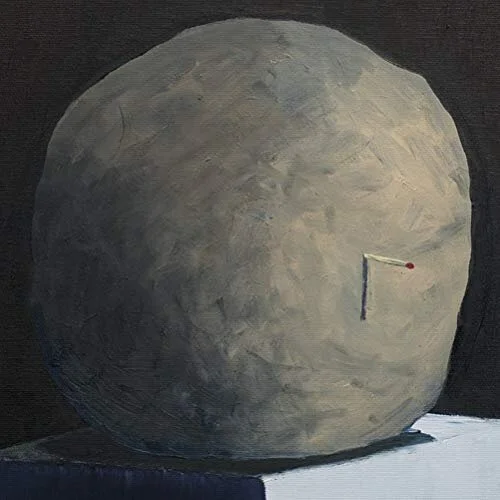Christmas Island - AJJ (SideOneDummy, 2014)
There’s no denying that Sean Bonnette and Ben Gallaty, the happy-go-snarky brats at the helm of AJJ, ascended a personal musical Matterhorn with their third record, Knife Man. And yet, for some reason it’s their next release that I come back to most often. After the spastic smorgasbord of deprecation on Knife Man, 2014’s Christmas Islandsounds almost baroque in comparison. Its lyrics range from the cryptic and gross to the literal and uplifting. It also contains a goodly number of their catchiest tunes (“Temple Grandin,” “Kokopelli Face Tattoo”) alongside a cycle of desperado dirges (“Coffin Dance,” “Deathlessness”) that continue Knife Man’s excursion into genres like country and blues-rock—not flawlessly, but any experiment that precipitates a guest vocal from Xiu Xiu’s Jamie Stewart has to be progress from a band like AJJ. - Ben Peterson
CLEAN- WHORES. (Brutal Panda, 2013)
“I AM NOT A GOAL ORIENTED PERSON,” “COUGARS NOT KITTENS,” WHORES. have a sick sense of humor. But that’s clear from the opening punch of “BABY BIRD” a salute to destroying the self in all sorts of horrific ways to be born again. Ego death through fuzz pedals.
From a surface reading, CLEAN sounds like a shock for shock’s sake release, from the artist’s name down. But the fiercely political trio use their sludge to fight for common folks: sex workers, miscreant punks and other factions that elite classes view as undesirable. The punishing low ends and fiery yelps of front man Christian Lembach cry out for both a self-cleanse and revolt, combined in unholy harmony. In an album filled with bar fights and drunken stupors, the bookends speak to an ascent through this morass of thrilling noise. - NS
Listen to our interview
In Conflict - Owen Pallet (Domino, 2014)
“That was the first thing I’d see…this sign saying “I am not afraid.” And it would just be like magic. Like BOOM I’m out of bed and life is great! And so I kind of wanted to start this record—which is difficult and has a lot of blood on it—I just wanted to start it off with “no we’re going to work through this.”
When I interviewed Owen Pallett during the release of In Conflict, I considered putting my own “I am not afraid” sign on my wall. The song version of that text had already helped my mental health massively, and still does to this day. In a decade where music became more and more comfortable with vulnerability across all genres, Pallett’s In Conflict was still a remarkable statement. It wasn’t just the blood on it, but the blood flowing through it, spiked with Lovecraftian horrors, LSD and lust.
In Conflict was an exploration of dysphoria of all sorts. “I was a kid without a heart/ My chest an empty cavity,” sings Pallett before admitting “You said you’ll never go home, but the truth is you never left it.” The geography is as fluid as the gender, sexuality, mental state and plains of existence Platte zooms through. A parade of T-ball players becomes a warring band of raiders, reflecting the future masculinity that’ll be forced upon them, a solider hugs his mother before stabbing his brother with a bayonet and two lovers set a house on fire with the power of their desire. The images flicker with the instability of those flames, but Pallett mixes flashes of horror with humor. “We all will live again/ In the eyes of an actor/ And the light on the glass/ So let me see that ass!” He cheerfully cries. That tender, human, goofy touch is what makes In Conflict pulse with life. Owen isn’t afraid, but, if you are, there’s no better companion to carry you through. - NS
It Could Just Be This Place – Not An Airplane (Self-Released, 2011)
“It’s easy to fall in love,” but is anything else easy? Nick Shattell doesn’t think so. The paranoid, beautiful, rambling sprawl of It Could Just Be This Place rushes its way through decades of country music, detailing every hardship and heartbreak Americana loves to soundtrack. Yeah, falling in love is a piece of cake, but late night conversations with an obstinate god, growing old and getting your heart chipped away by the weight of the world, not so much.
One of the proggiest and most ambitious records of any genre this decade, It Could Just Be This Place is split between two mammoth tracks that bounce wildly from passage to passage. Maybe it’s one character, maybe a multitude of Shattells arguing with each other, the scenes and costumes are tear down and tear offs. Shattell crows his way through the eyes of withering vaqueros, newly minted atheists and country monks searching for impossible answers. And the music matches, flowing through bluegrass, pastoral folk and train whistle harmonies. Ken Burns would need at least another special just to get through the knotty world of It Could Just Be This Place.
By the close of the album, Shattell has taken a hatchet to his soul, carving out something new. Whether that’s good or bad, he doesn’t give any answers, nor does the mysterious figure lurking at the edges of his lyrics. When an old man with eyes clear as blue sky joins him in the final coda, he gives a simple shrug to the babbling questions that formed It Could Just Be This Place. But if any album this decade exemplified journey over conclusion, it was It Could Just Be This Place. - NS
Listen to our interview
A Crow Looked at Me - Mount Eerie (P.W. Elverum & Sun, 2017)
Take a second and consider the events of your life. Some of them have yielded happiness, longing, trust. Some of them have ended in anger, resentment, even tragedy. What do you still carry with you?
Phil Elverum carries many thing: he was the bandleader (and occasionally the sole member) of beloved folk act the Microphones; he worked closely alongside Calvin Johnson and K Records at the height of the Olympia music scene’s power; he dabbled in photography, printed art, filmmaking; he produced records for friends and acquaintances; and, maybe most importantly, he’s been producing his own records under the Mount Eerie moniker since 2003. In the summer of 2016, Elverum had one of those cursed experiences. His wife, the artist and musician Geneviève Castrée, died at 35 shortly after being diagnosed with pancreatic cancer, leaving Elverum to raise their daughter and carry on their legacy.
In the liner notes of A Crow Looked at Me, the collection of songs Elverum wrote and recorded during and after Castrée’s passing, there is an anecdote that reads, “Written and recorded August 31st to Dec. 6th, 2016 in the same room where Geneviève died, using mostly her instruments, her guitar, her bass, her pick, her amp, her old family accordion, writing the words on her paper, looking out the same window.” When Nathan and our friends and I saw Phil perform these songs in a pin-drop quiet rec room in Eugene, we were moved not only by his courage but also by his warmth and humor. “This is kind of fucked up,” he chuckled at one point, encouraging us not to be so silent between songs. It was fucked up, but in a way that felt cathartic and necessary and good. I will never understand Phil’s pain. I can’t. What I know is that, with A Crow, he gave me an album that feels honest and true, that grounds death in reality but never exploits it, and that provides a glimpse into a life he is no longer living and will never live again. Haunting, devastating, but oddly comforting. Funereal folk for the right place and time. - HM
Divers - Joanna Newsom (Drag City, 2015)
Do you remember that tree in the park that towered into the sky? Dwarfing and protecting? Or the books your parents read you at bedtime, so flush with life you could hear the dragons breathing fire, the potions being brewed? Do you remember revisiting them, surprised that the tree didn’t grow like an Ent, and your books were just confined to paper?
Joanna Newsom entwines them both, the vivid, impossible imagination of childhood and the more ambivalent realities of adulthood. For her entire career, she has spun myths like Homer with a harp. Divers matched her usual Joycean-Prose, (she rhymes “W” and “Sapokanikan” as an opening line for Pete sakes) but cut in concise angles. World War IV rages on in the background of Divers, her own elegant middle finger to the current, churlish leaders of the world. She watches the stars in “A Pin-Light Bent,” pondering the insignificance of those interstellar giants in comparison to the universe and our own infinitesimal existence in their light. But while Ys and Have One on Me exploded into grandeur, abstraction and legend to elevate her emotional turmoil, Divers realizes there’s no need for the very constellations to come to earth to help tell her tale. She is powerful enough on her own.
The core of Divers is outlined in the finale, “Time, as a Symptom.” In the midst of future wars and cities warped by fluctuations in history, her most blunt lines land even harder. “the task was the hardest thing she'd ever do / But she forgot, the moment she saw you,” she sings in the starkest line of her career. There is a wondrous desolation there. “When cruel birth debases, we forget / When cruel death debases, we believe it erases all the rest,” she coos only a few seconds later, watching Divers, and perhaps her whole life, rewind in front of her. For “Time, as a Symptom” is an unfinished sentence. “Time is just a symptom of love.” For every pain, every joy, every defeat, every triumph leads back to love. The base of our feeling on this small pool of water and rock—is love. It is where we sprout from. As “Time, as a Symptom” bursts into a climax half-way between Holst and Smashing Pumpkins, Newsom’s final word is cut off. Just as she is about to sing “Transcend!” The music fades into the hush of a nightjar hooting, the same sound that opened the album. It is all cyclical. As Terry Pratchett once said, you must “start small, like oak trees.” All that growth, an entire ecosystem ready to erupt from a fragile, tiny seed. Somewhere, a child climbs a tree and lets imagination take hold. A harp strums. - NS
A Dream Deferred - Skyzoo (Duck Down, 2012)
Chi-Ali bumps from a Walkman and another kid’s Jansport Strings get jacked. Hustlers on the side streets dispense wisdom and warnings. The city dreams and murmurs in its sleep. Skyzoo watches. As pastoral as the works of Langston Hughes, Sky charts his own evolution, with ambitions growing in scope, even as the ramifications match the pace.
As sharp-eyed and detail focused as any rapper this decade, Sky took technicolor beats as his canvas to paint an intimate portrait of Brooklyn. Mentions of Roemello, Spike Lee and wishing proper revenge on James Dolan makes it as New York as possible, but that’s just the surface. A lovely surface mind you, but Sky’s got bigger goals in store, reflecting on the possibilities and passions of Black excellence in a world that wants to do nothing more than crush dreams, watching them dry up like a raisin in the sun. - NS
Listen to our interview
Dream Songs - Devon Welsh (You Are Accepted, 2018)
From the title down, Dream Songs sways into unreality. Nostalgia washing over the notes, leading to sepia-dusted recollections of swimming in rivers as the summer waned. Impersonator was Devon Welsh “writing in communication with myself,” and, at the decade’s end, he’s opened to the larger world.
“Comedy is the salvation of suffering,” Welsh says, poking at the intwining nature of tragedy and humor. It’s not in a simple “well, if I couldn’t laugh I’d go crazy,” instead, Dream Songs explores how the motions of laughing and crying are reflections of each other. As another Canadian song-writer once said “laughin’ and cryin’ you know it’s the same release.” - NS
Read our interview
Écailles De Lune - Alcest (Prophecy, 2010)
Metal seeks transcendence. Few genres long for another world like the blackened sonics of Emperor or Dissection. And the oceanic movements of Dream Pop already seem like they’ve found that other realm. The tendons connecting the genres have always been there, but Alcest is the conduit the two meditative genres always deserved.
But that becomes background noise to the French band. They are drawn to the natural world and Écailles De Lune is a sweeping ode to our own insignificance in the face of the ocean, the sky, the woods and the creatures and spirits that inhabit them. The album ends with visions of our souls one drop of water in a mighty ocean, yearning to return to a collective unconsciousness. If you’ve got Écailles De Lune for an hour you don’t have to seek transcendence. Alcest will find it with you. - NS
Listen to our interview
An Empty Bliss Beyond This World - The Caretaker (History Favors, 2011)
There was plenty of music this decade looking to be eerie through John Carpenter synths or metal want to brutalize through sheer, blunt force trauma. But no album shivered the soul quite like the unassuming dread of An Empty Bliss Beyond this World.
The background is well tread enough. The Caretaker, an alias of James Leyland Kirby, was fascinated by articles documenting how music affected the memory recall of dementia and alzheimer's patients. Already toying with nostalgia in pop music with his V/vm project, Kirby embarked on a vinyl spree, picking up odd and ends 78s, dixieland, jazz hall and big band records that made a fuzzy recollection of the 1920s. But, even on first listen, something is deeply wrong about An Empty Bliss. Despite the pleasing melodies in the first half, the choppy blips, spurts of noise and cyclical structures lead to an amnesiac feel. Motifs reappear at random, the white noise ratchets up slowly, a sense of “have I heard this before?” pops in and out. It is a cavernous sound, and worryingly easy to get lost in. Except for the sudden cut to the terrifying “I Feel As If Might Be Vanishing,” there is no moment of shock, just a slow, creeping dread. - NS









